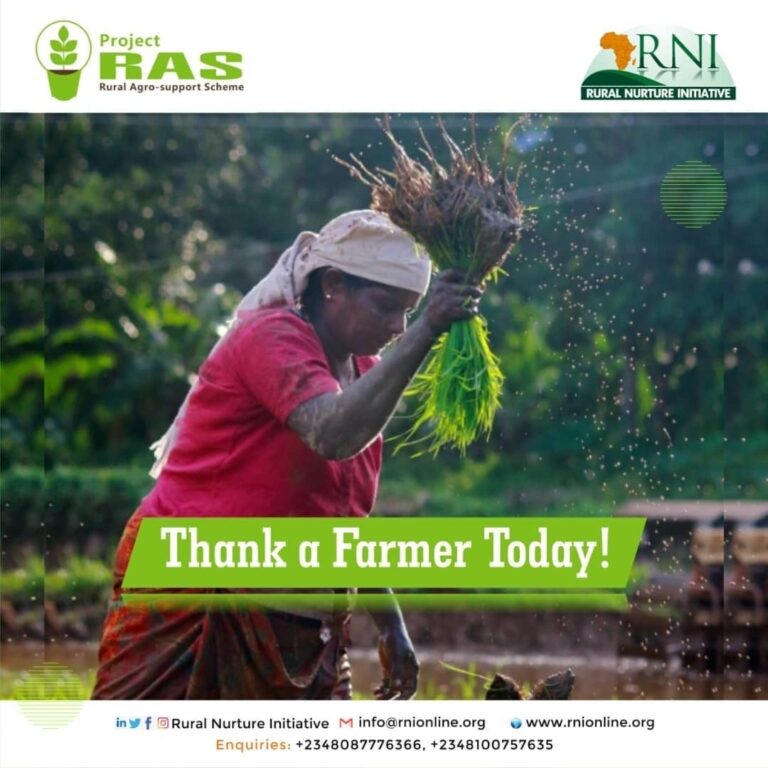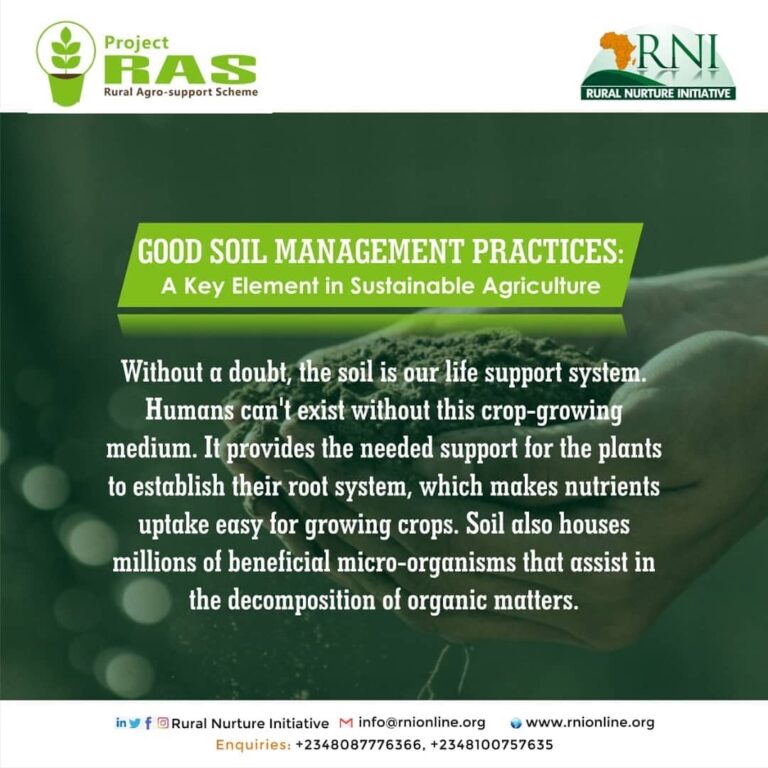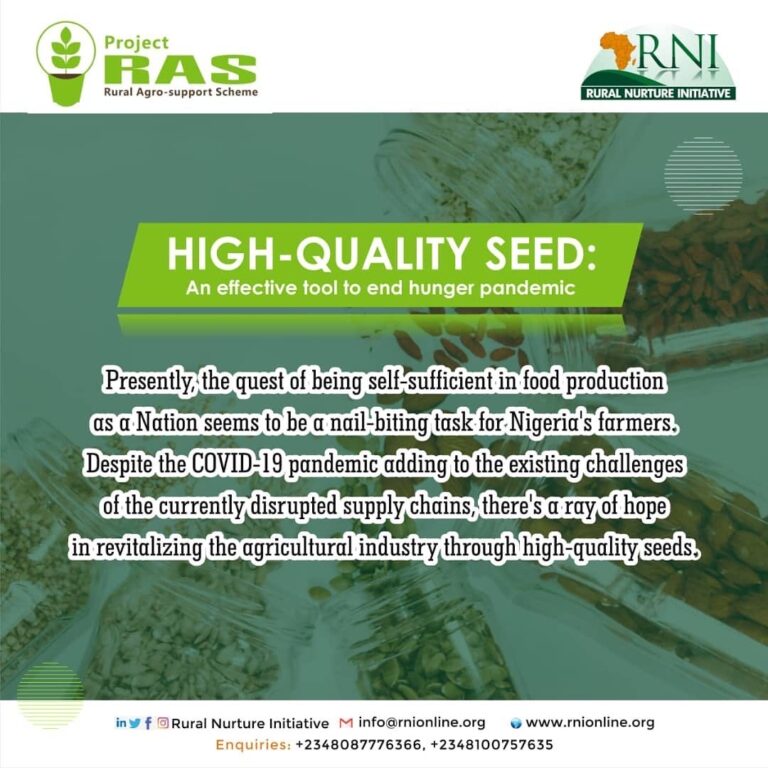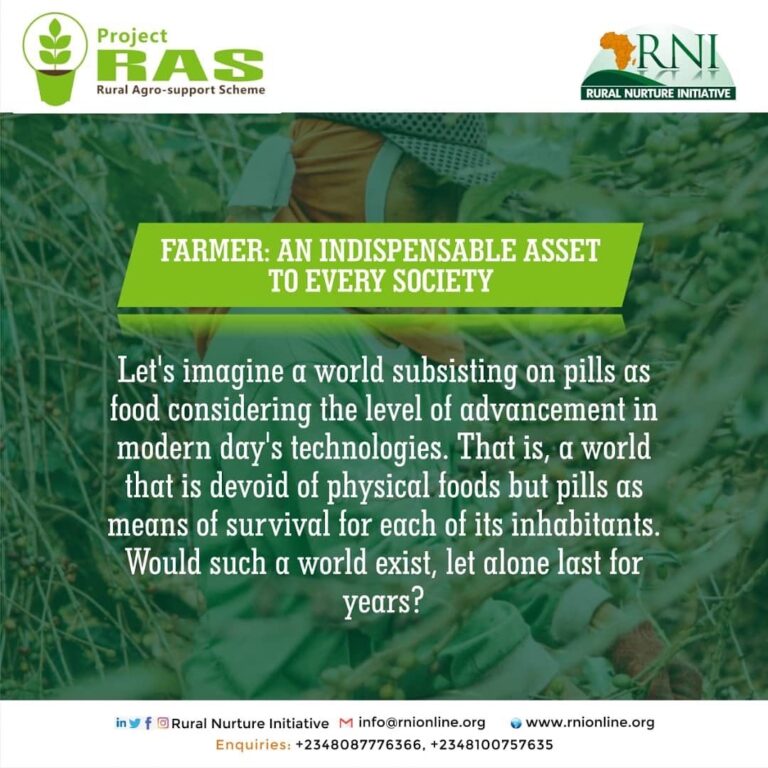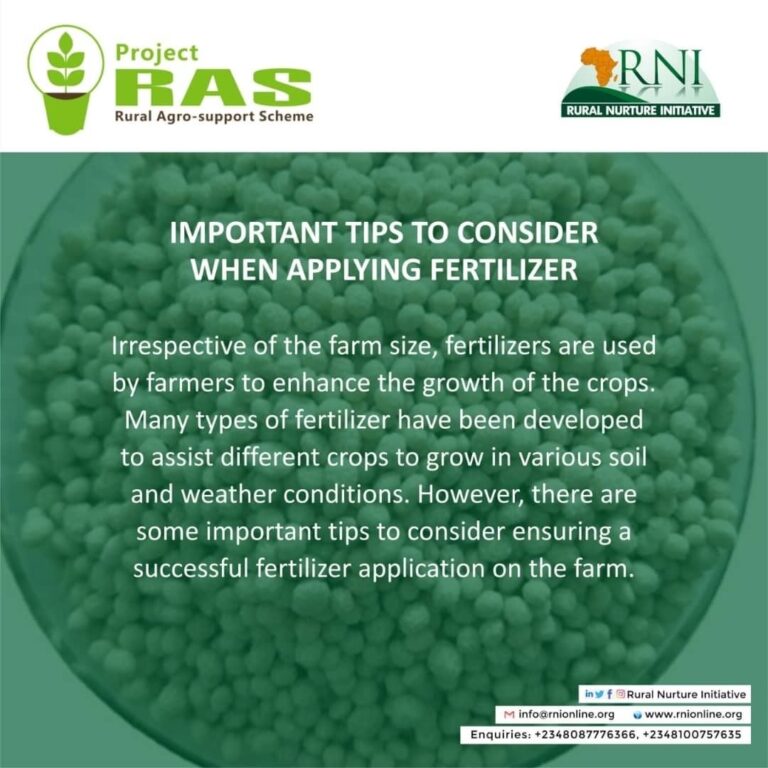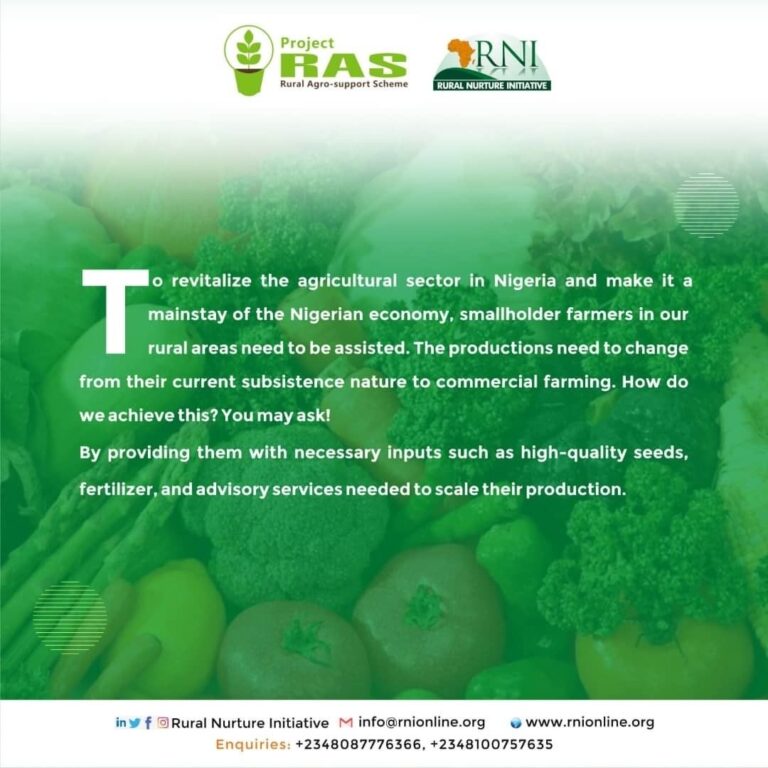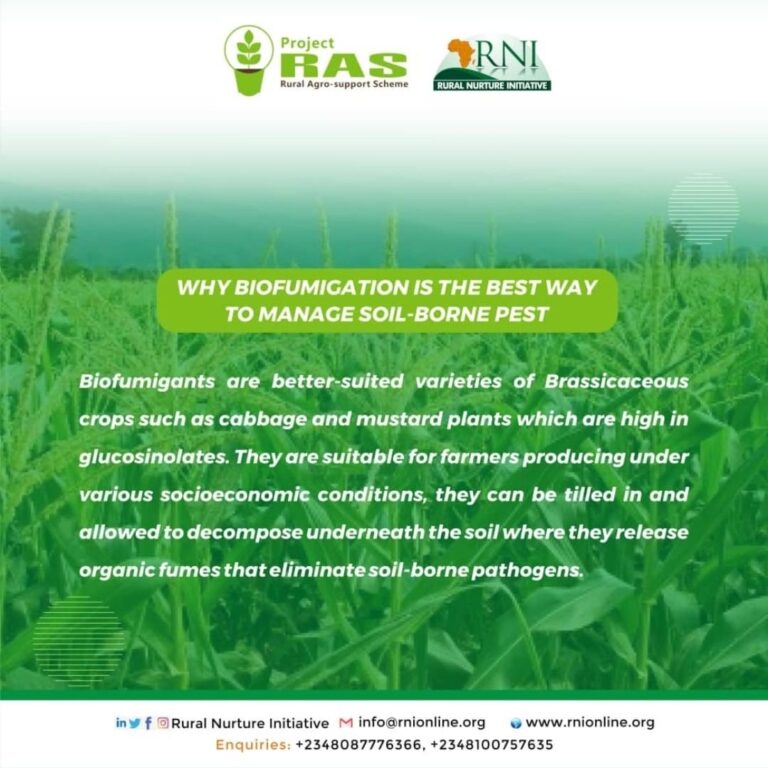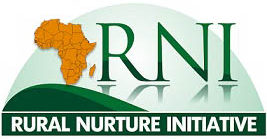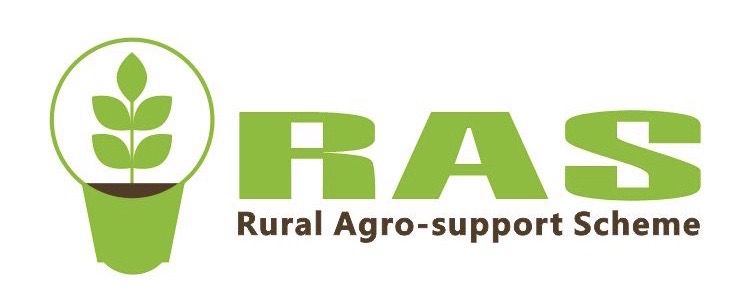
The Rural Agro-support Scheme (RAS) is a key intervention under Rural Nurture Initiative (RNI), aimed at alleviating the fundamental challenges plaguing agricultural systems in rural areas.
Addressing food insecurity, exacerbated by factors like poverty, climate change, corruption, and insurgency, remains paramount. The COVID-19 pandemic has exacerbated these challenges, hindering progress towards achieving SDGs 1, 2, and 3, and disrupting global food supply chains.
Smallholder farmers, primarily responsible for food crop and livestock production, play a crucial role in combating hunger and malnutrition while contributing to economic growth. However, climate change, pests, insecurity, and inconsistent policies impede their efforts.
Therefore, RAS focuses on providing technological empowerment, extension services for modern and sustainable farming practices, and agricultural inputs such as improved seeds and fertilizers to rural farmers. By addressing these challenges, RAS aims to enhance food security, livelihoods, and economic resilience in rural communities.
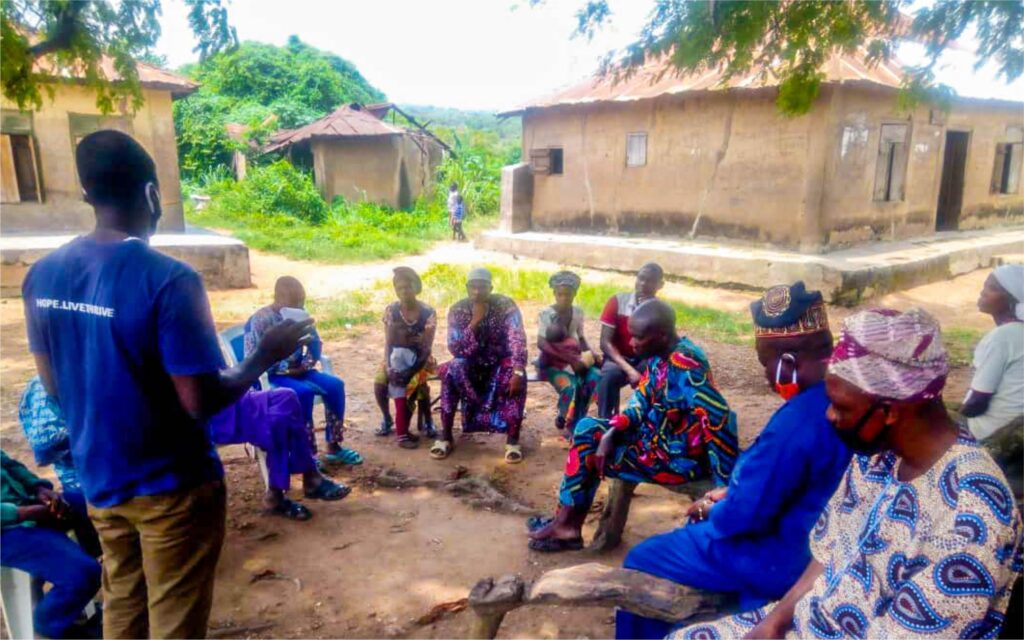
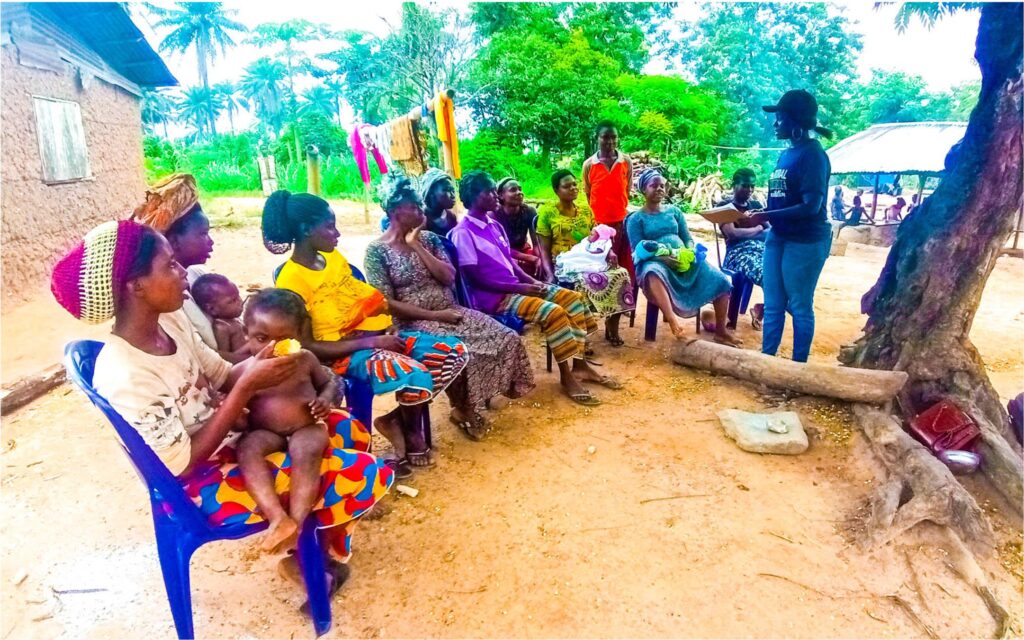
What we do?
Through our
Rural Agro-Support Scheme, we are promoting:
Food Security
We place importance on food security, addressing the critical need for sustained access to nutritious food in rural Africa. Hence, we strive to enhance food production, ensure resilience to external shocks, and build food-secure communities.
Access to Resources
We work towards ensuring that rural farmers have access to essential resources, including training, extension services, modern farming techniques, and technologies that enhance productivity.
Sustainable Farming Practices
Through our training and advisory services, we focus on introducing and promoting sustainable agricultural practices that improve yields while preserving the long-term health of the ecosystem and building resilience against environmental challenges.
Market Linkages
We facilitate market linkages for rural farmers, ensuring fair prices for their produce and promoting economic sustainability within the agricultural sector.
Food Security
We place importance on food security, addressing the critical need for sustained access to nutritious food in rural Africa. Hence, we strive to enhance food production, ensure resilience to external shocks, and build food-secure communities.
Access to Resources
We work towards ensuring that rural farmers have access to essential resources, including training, extension services, modern farming techniques, and technologies that enhance productivity.
Sustainable Farming Practices
Through our training and advisory services, we focus on introducing and promoting sustainable agricultural practices that improve yields while preserving the long-term health of the ecosystem and building resilience against environmental challenges.
Market Linkages
We facilitate market linkages for rural farmers, ensuring fair prices for their produce and promoting economic sustainability within the agricultural sector.
OUR PROJECTS
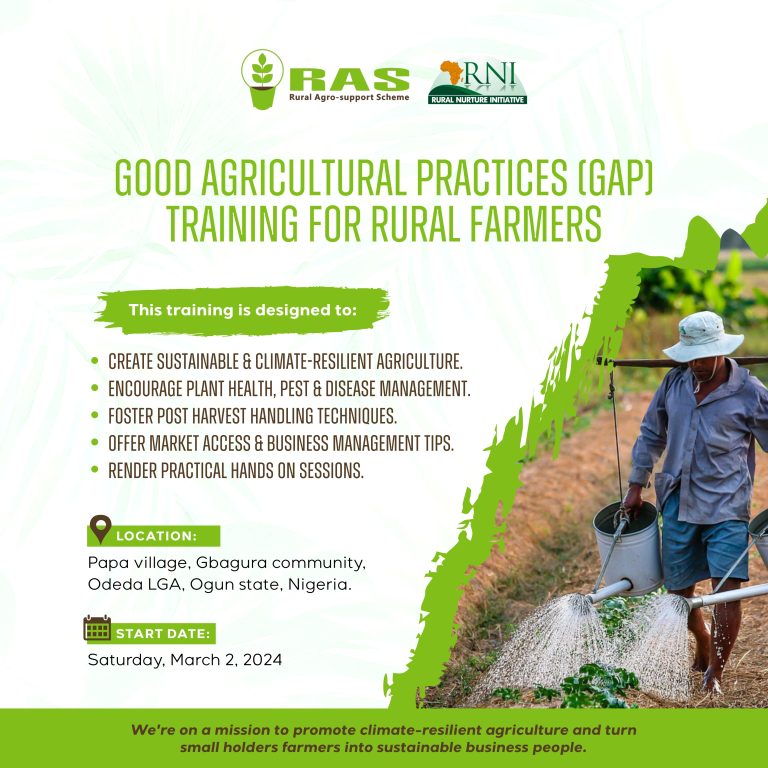
Good Agricultural Practices (GAP) Training for Rural Farmers
Background
Our Good Agricultural Practices (GAP) Training Program is designed specifically for rural farmers. At Rural Nurture Initiative, we understand the importance of adopting sustainable and efficient farming practices to enhance productivity, ensure food safety, and protect the environment. Our GAP Training equips rural farmers with the knowledge and skills necessary to meet the growing demands of modern agriculture while promoting responsible stewardship of natural resources. Our goal is to improve profitability, enhance market access, and contribute to the overall sustainability of agricultural systems.
Training on Soilless Farming (female farmers)

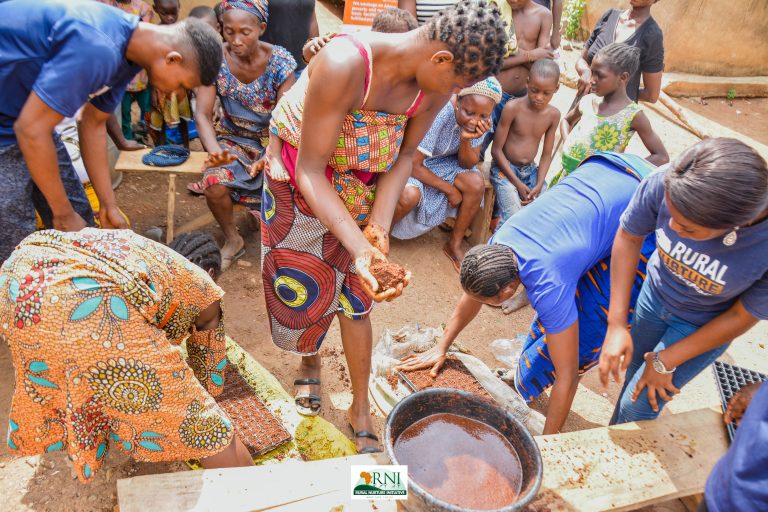
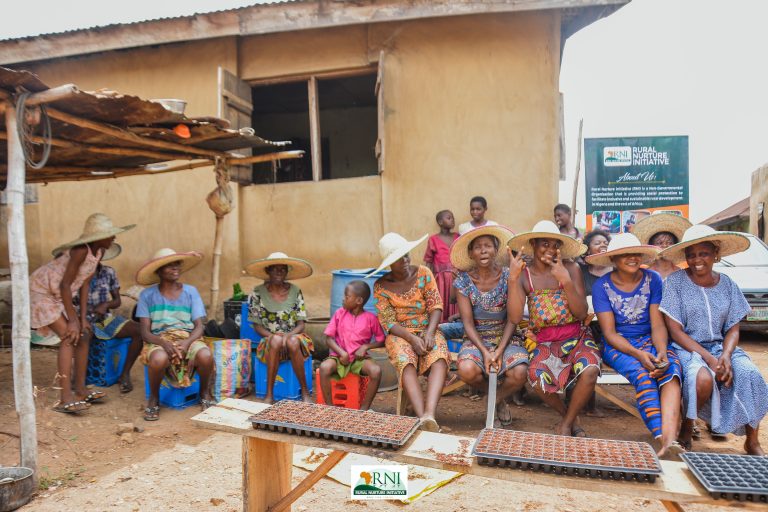
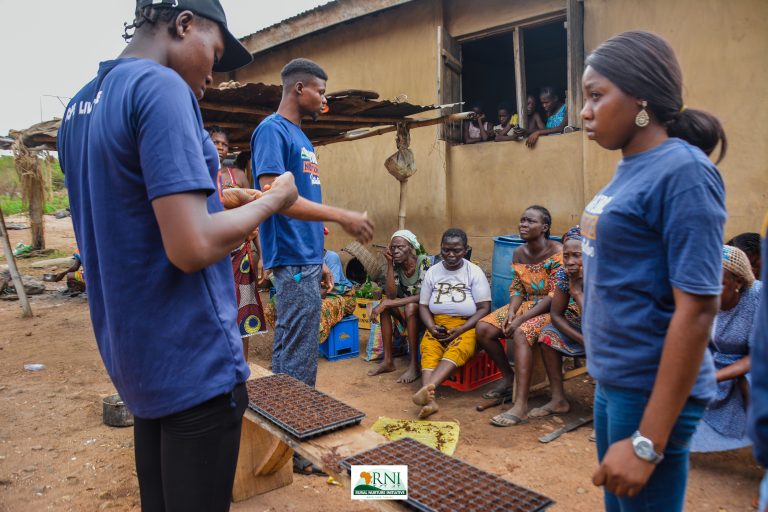
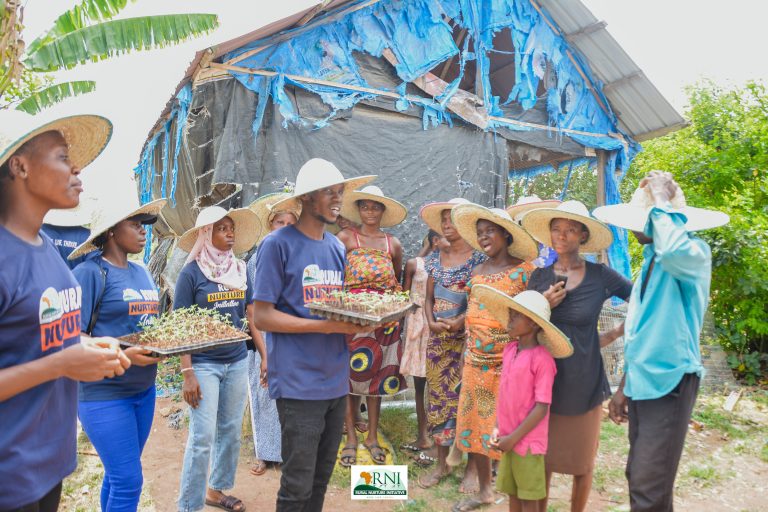
Soilless farming for tomato and pepper nursery production, using coco peat and nursery trays. Coco peat, derived from coconut husks, offers sustainability and pest-free advantages. This method minimizes disease risks and is suitable for indoor cultivation, benefiting rural farmers seeking sustainable practices.
Training on Soilless Farming (male farmers)
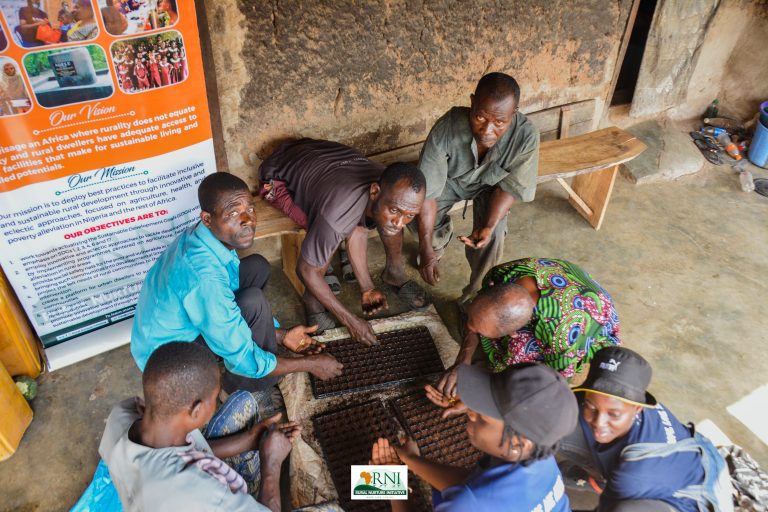
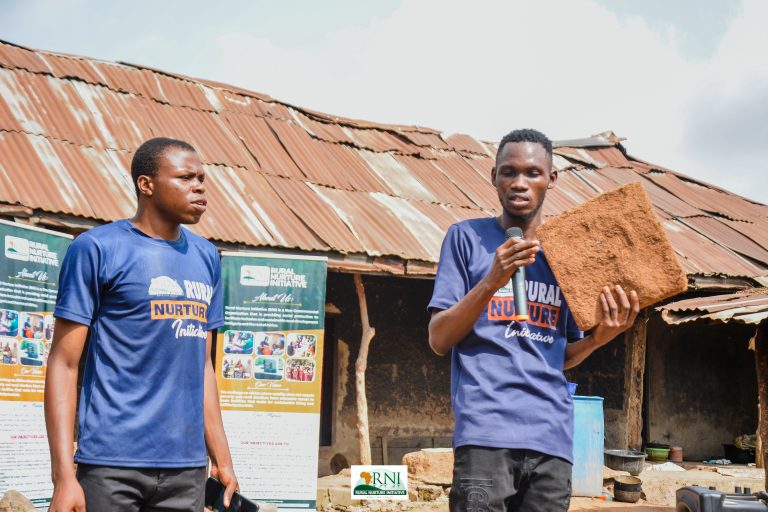
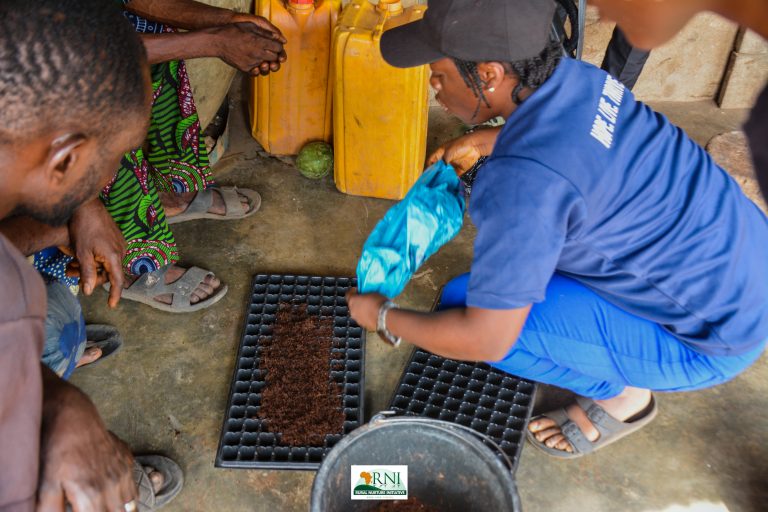
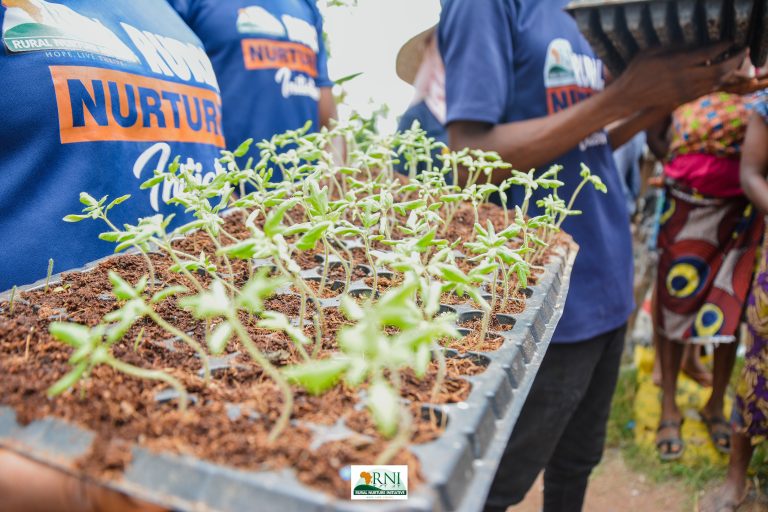

Soilless farming for tomato and pepper nursery production, using coco peat and nursery trays. Coco peat, derived from coconut husks, offers sustainability and pest-free advantages. This method minimizes disease risks and is suitable for indoor cultivation, benefiting rural farmers seeking sustainable practices.
Climate Change Sensitization
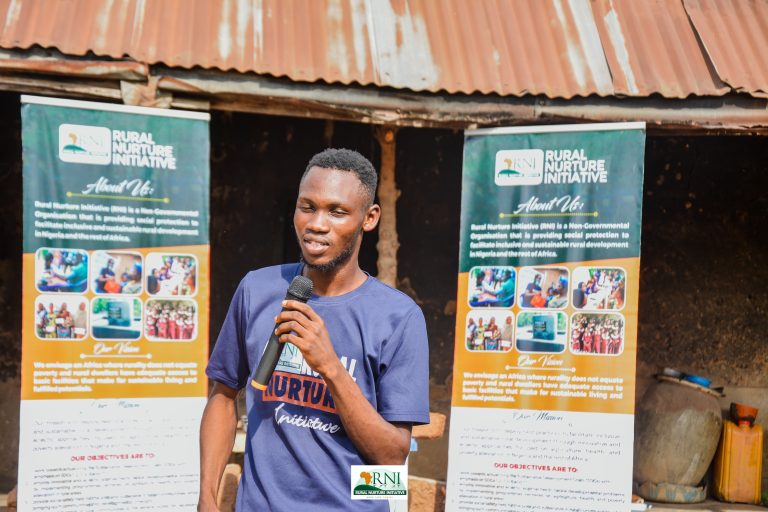
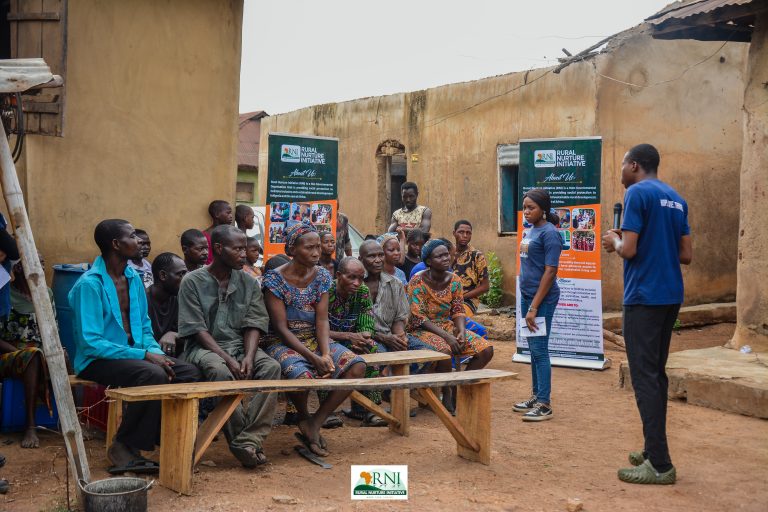
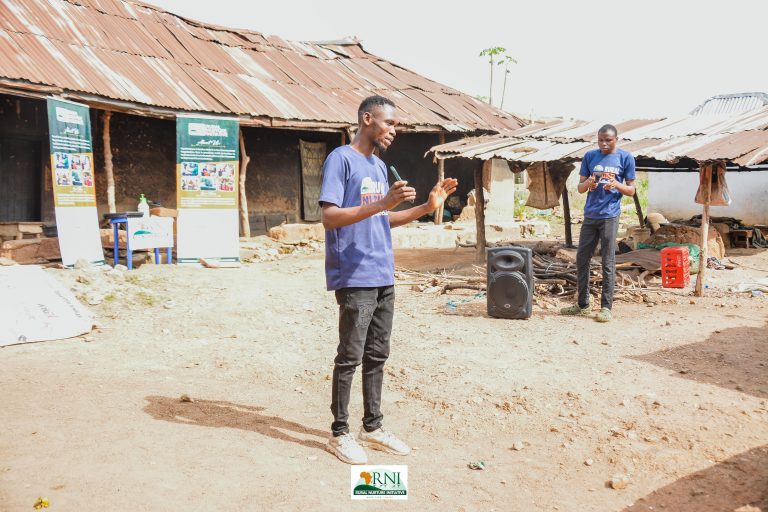
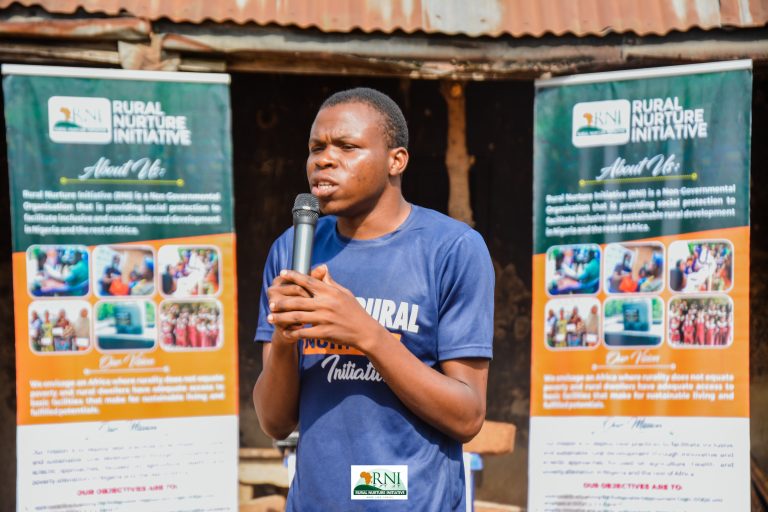
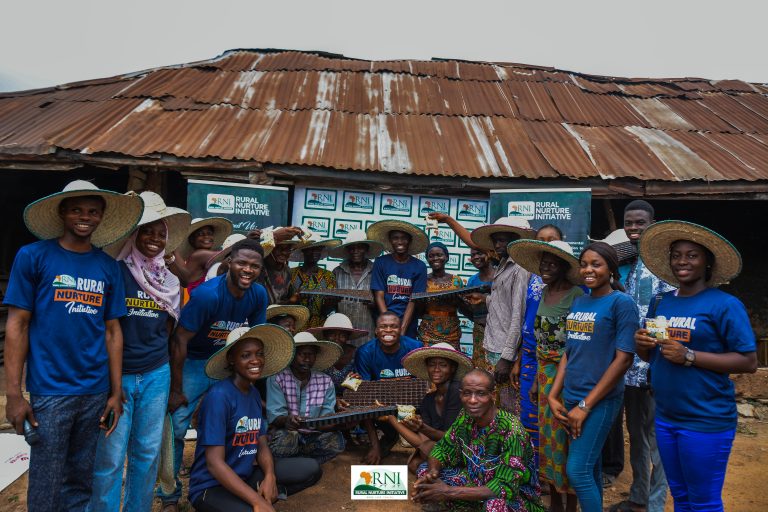
Distribution of Farmer's Hats
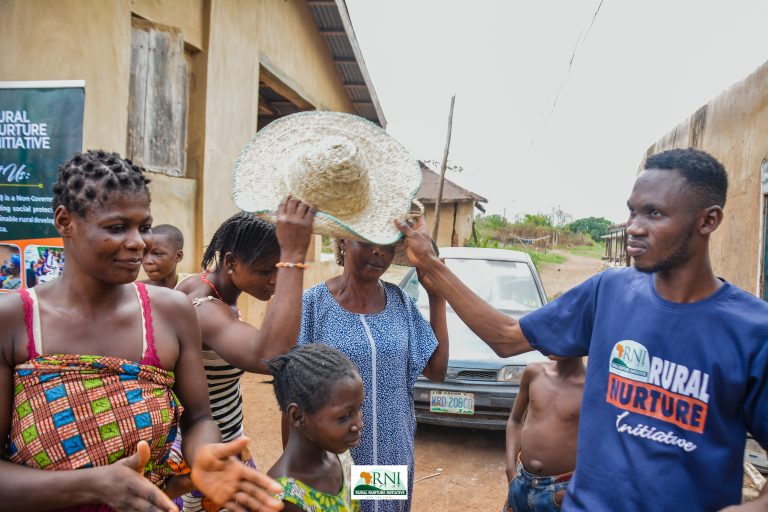
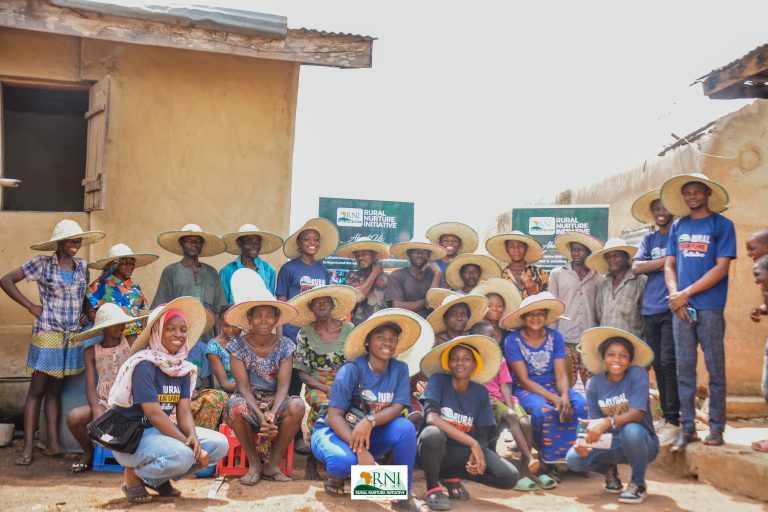
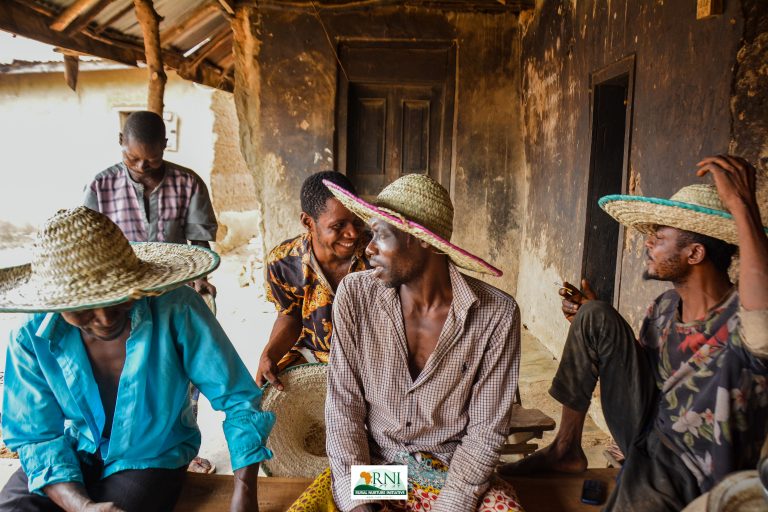
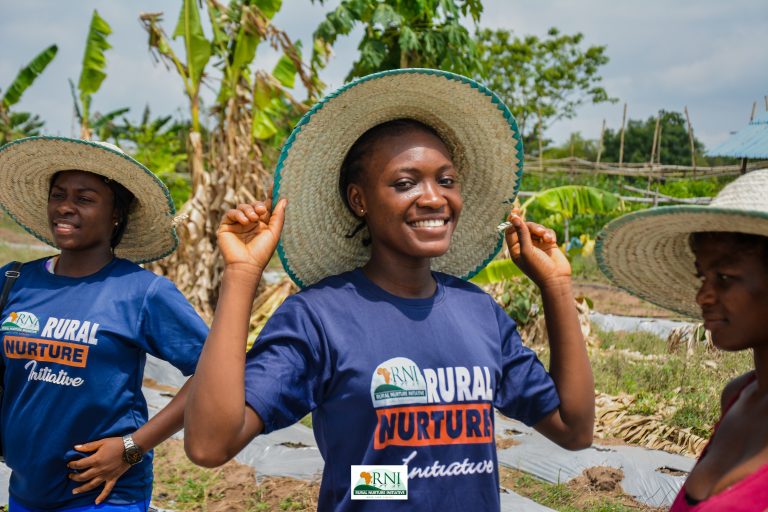
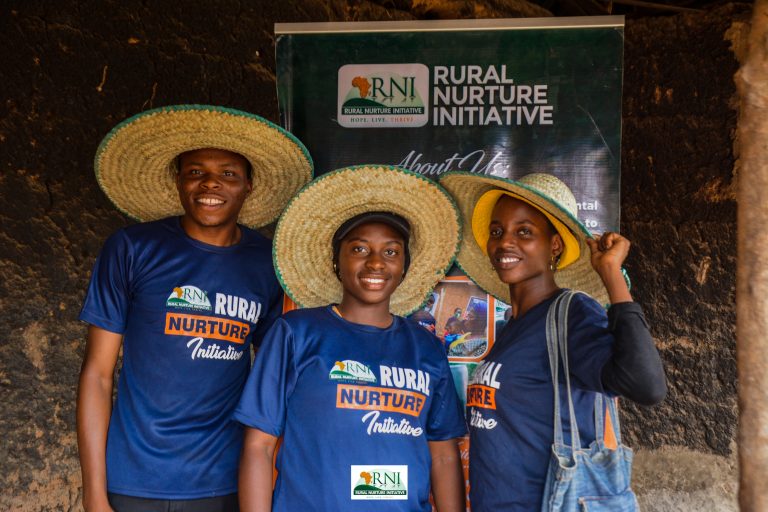
Distribution of Improved Seed variety
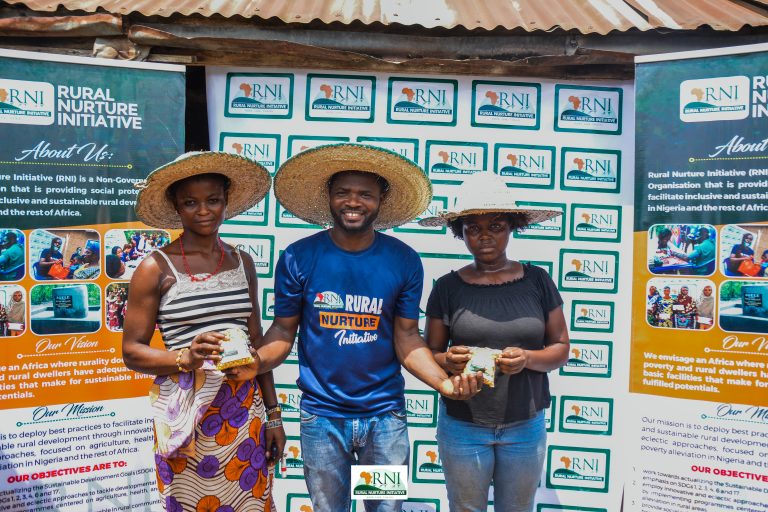
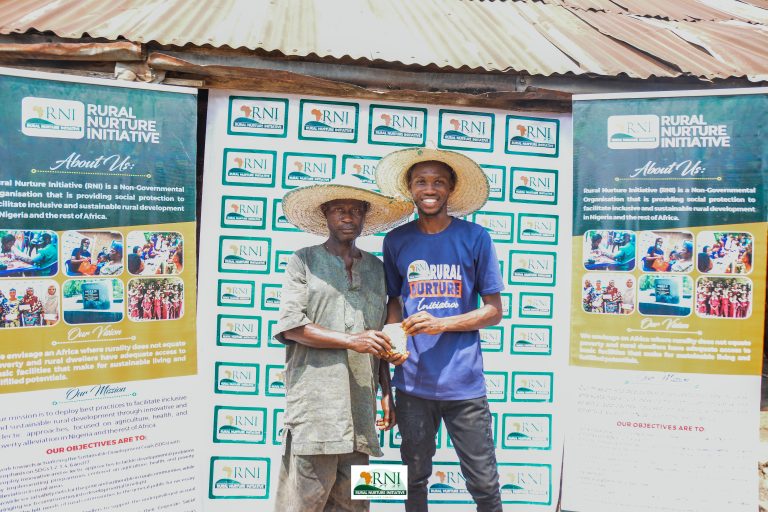
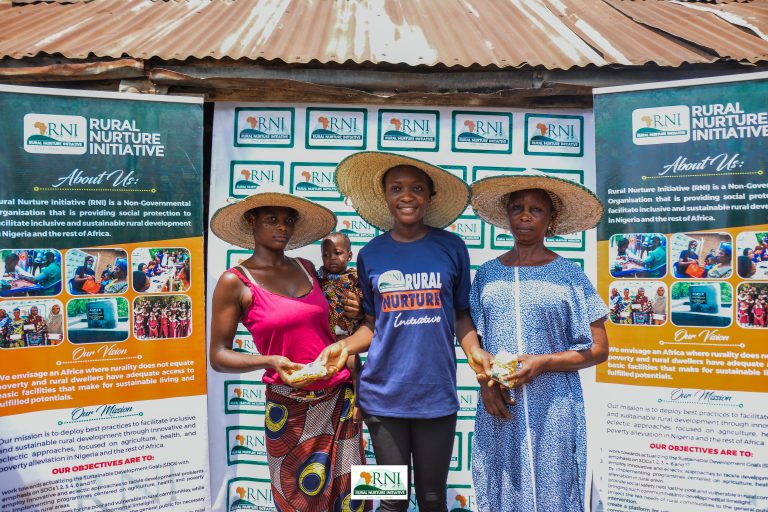
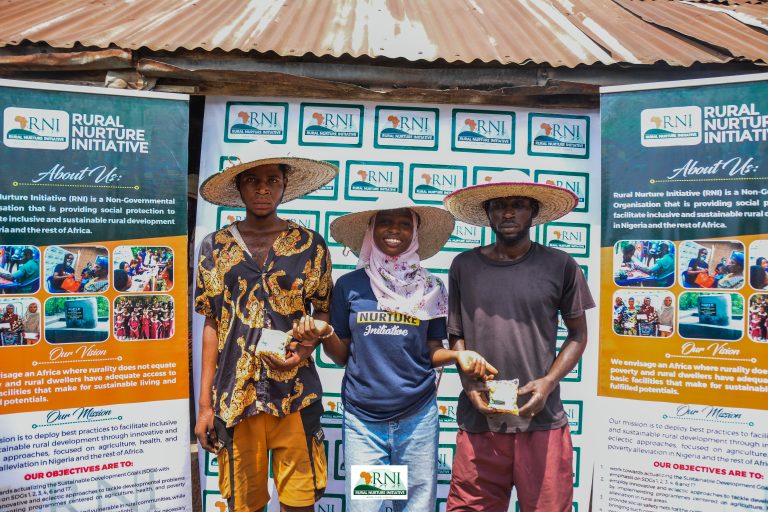
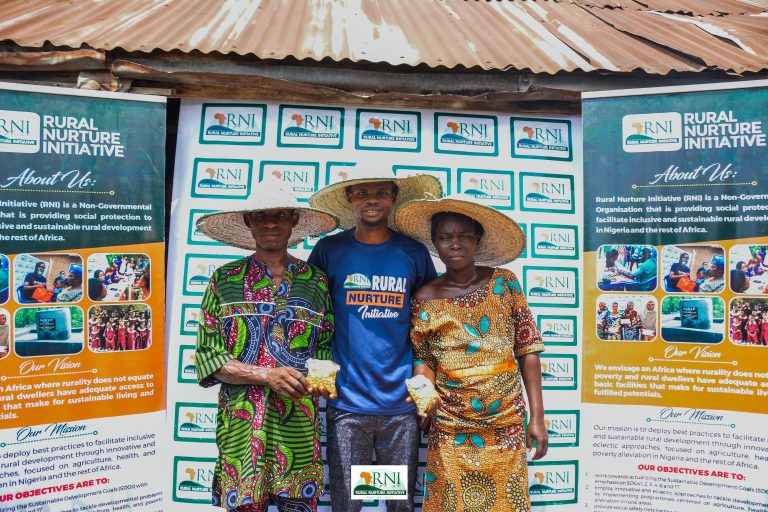
Farmers' Field Trip
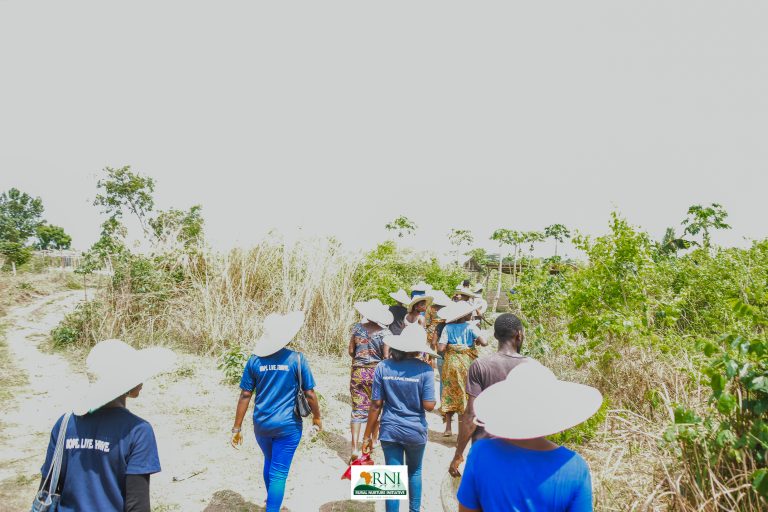
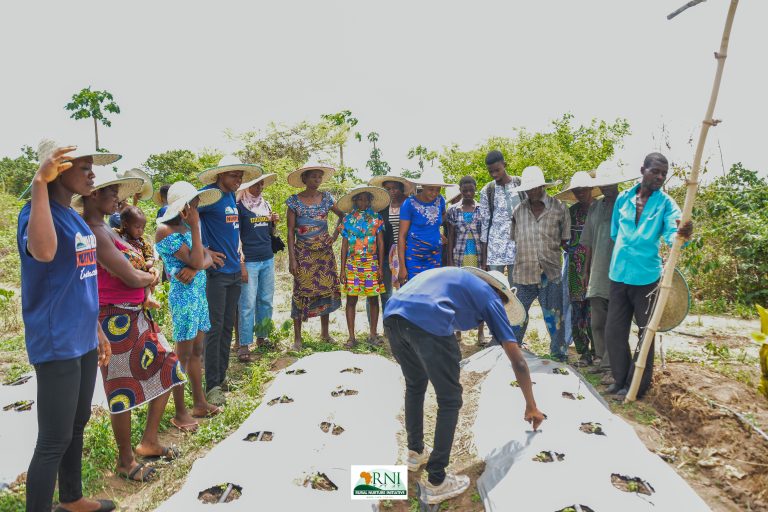
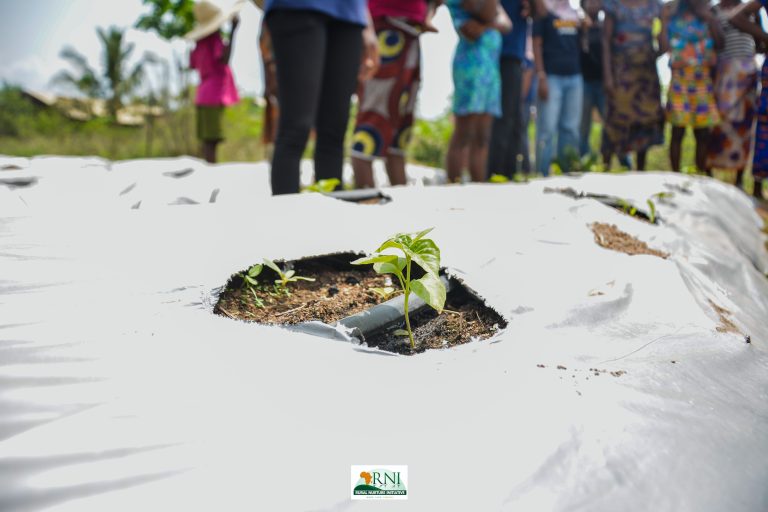
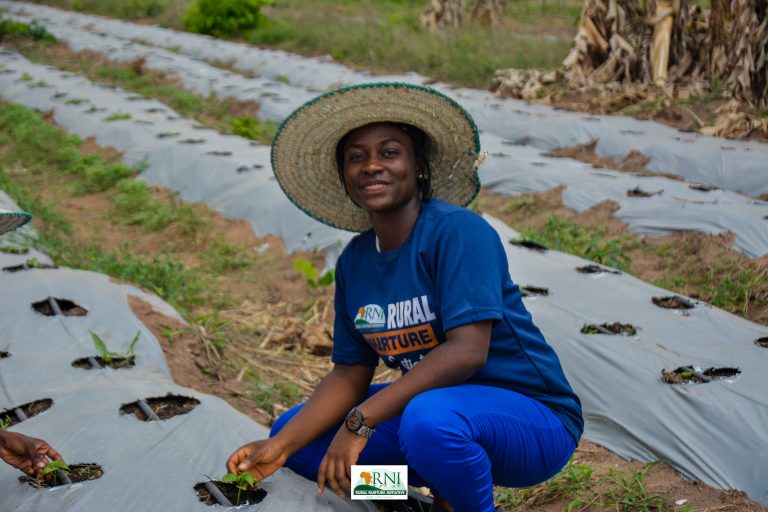
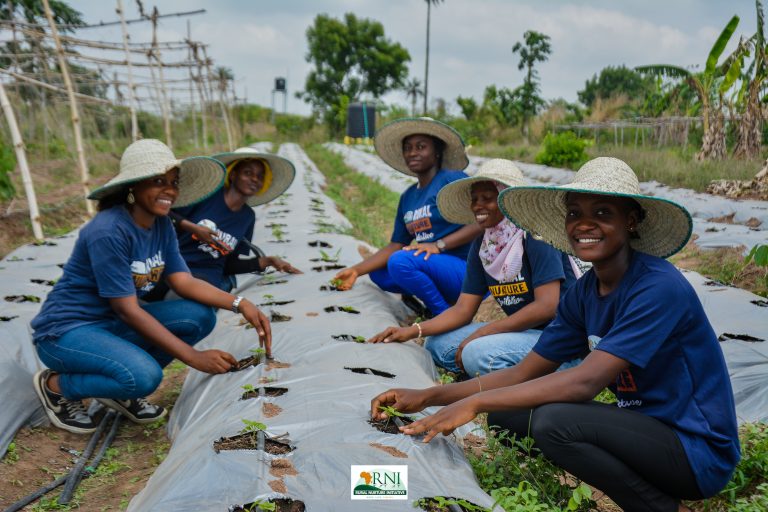
Climate Change Adaptive Response Project (CCARP)
Background
Climate change is one of the most complex environmental challenges undermining progress towards sustainable development, with notable adverse effect on agriculture and food systems in developing countries. It continues to threaten the achievement of food security and livelihood sustainability both at global and national levels. Unfortunately, small holder farmers in Nigeria, largely responsible for about 80% of the total national food productionare dependent on rain-fed agriculture. Consequently, there is growing evidence of vulnerability of smallholder farmers to the effects of climate change.
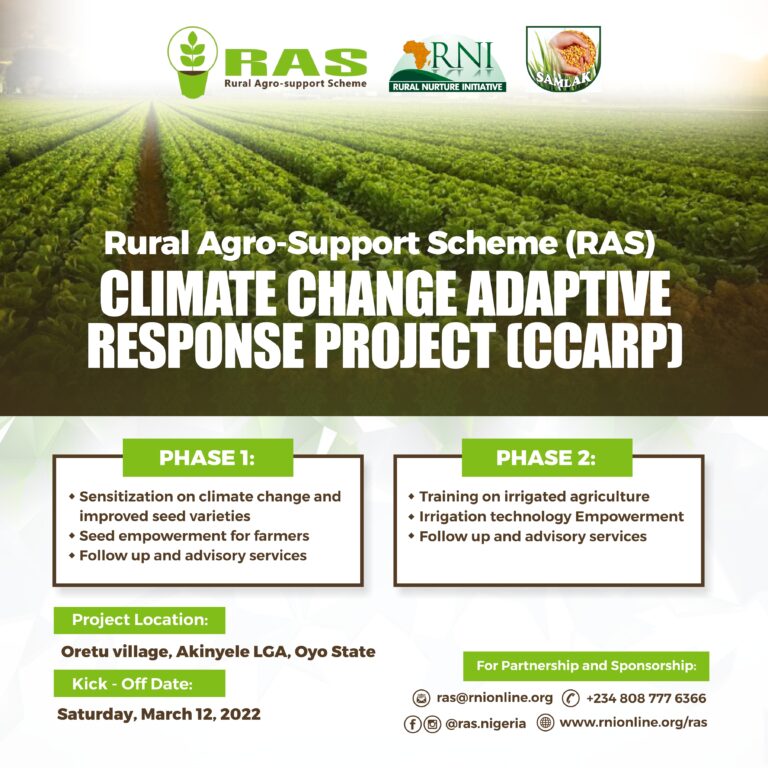
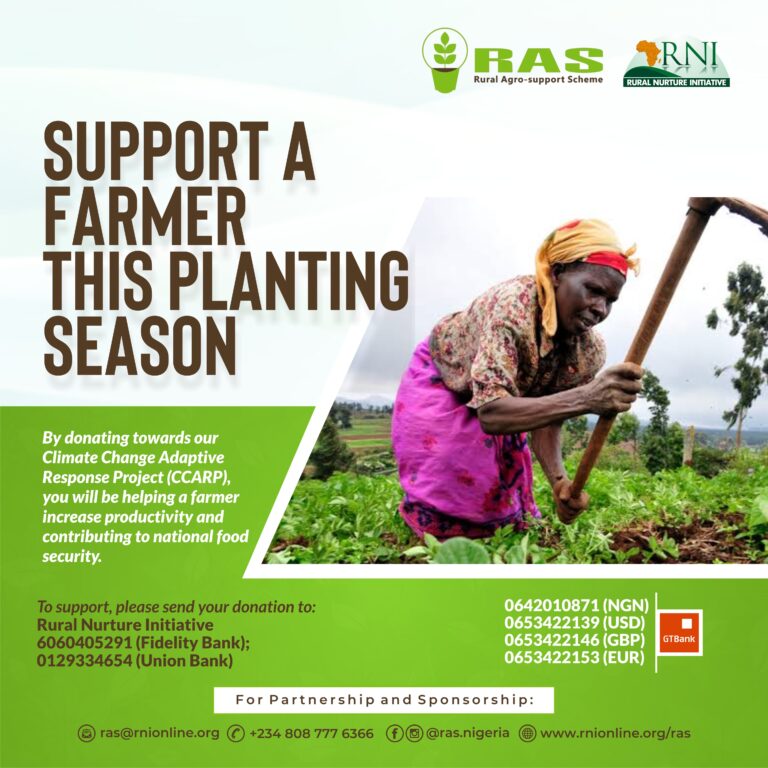
Climate Change Sensitization
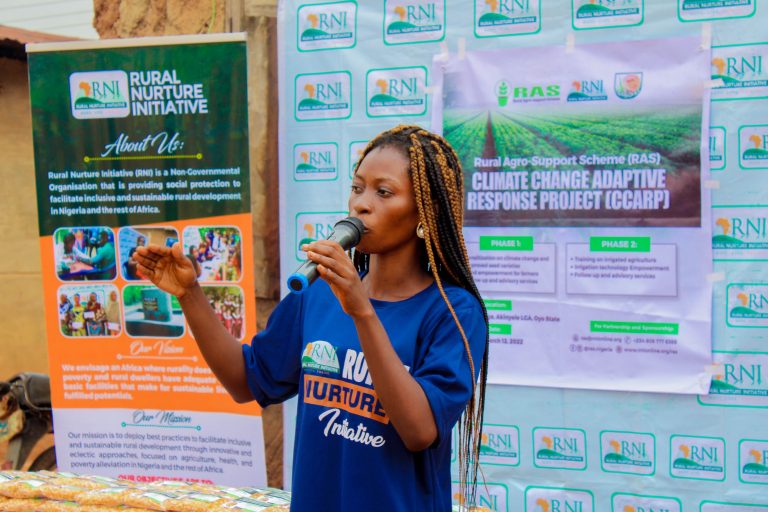
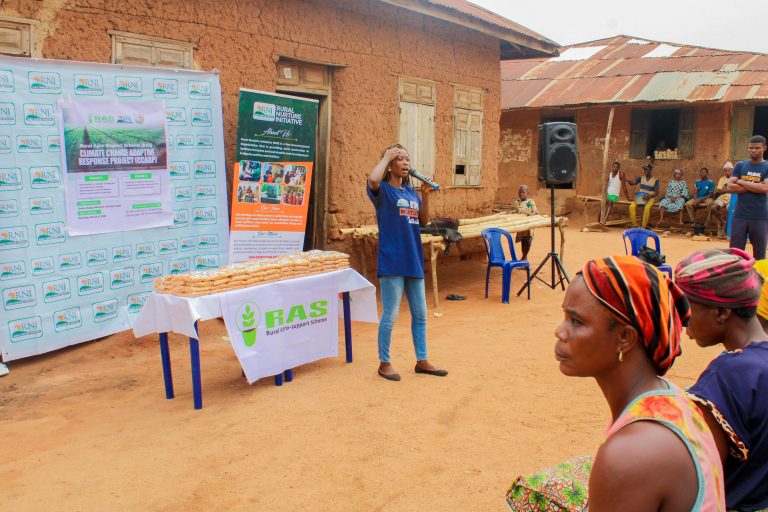
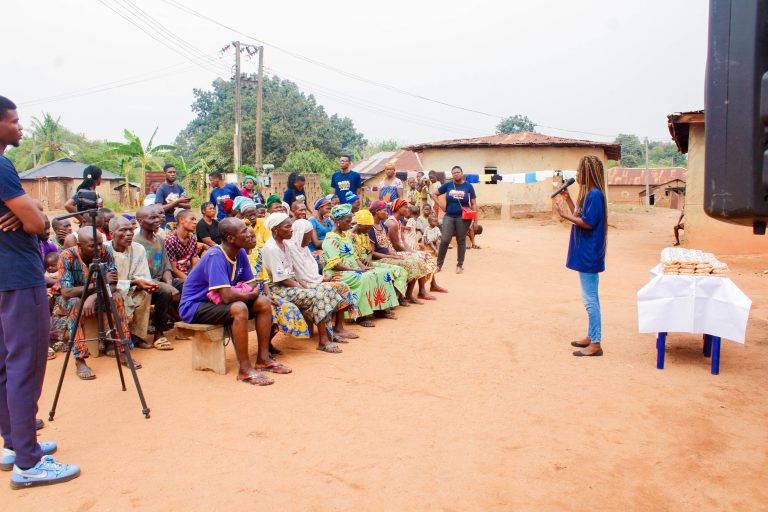
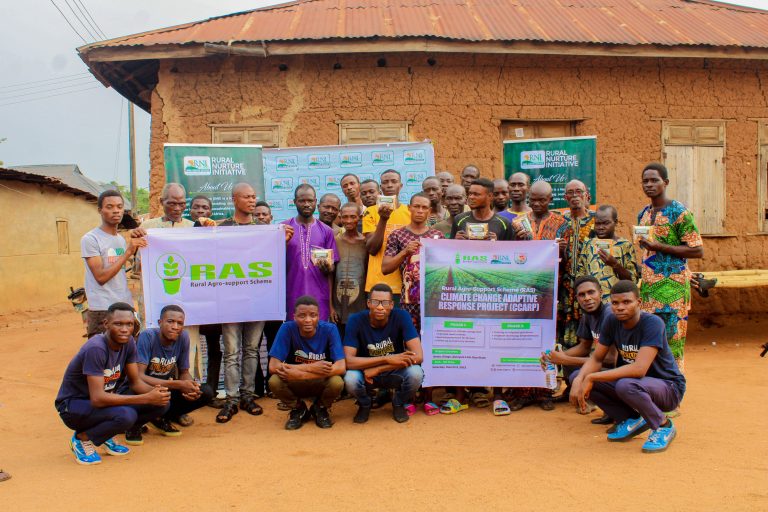
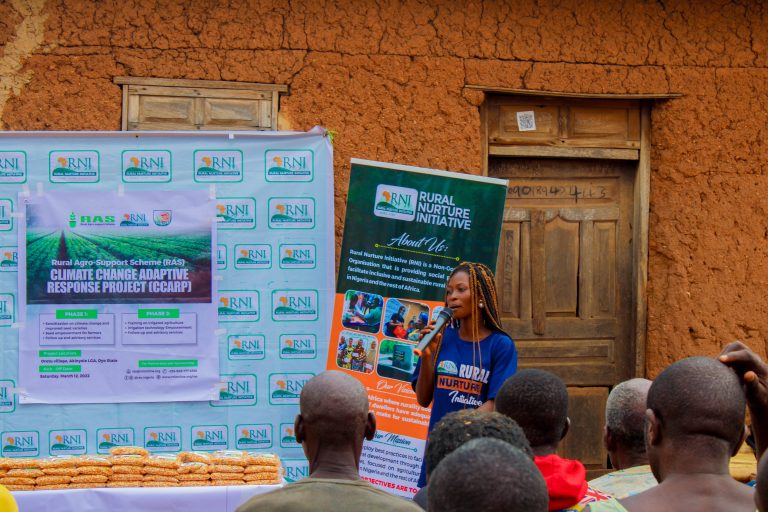
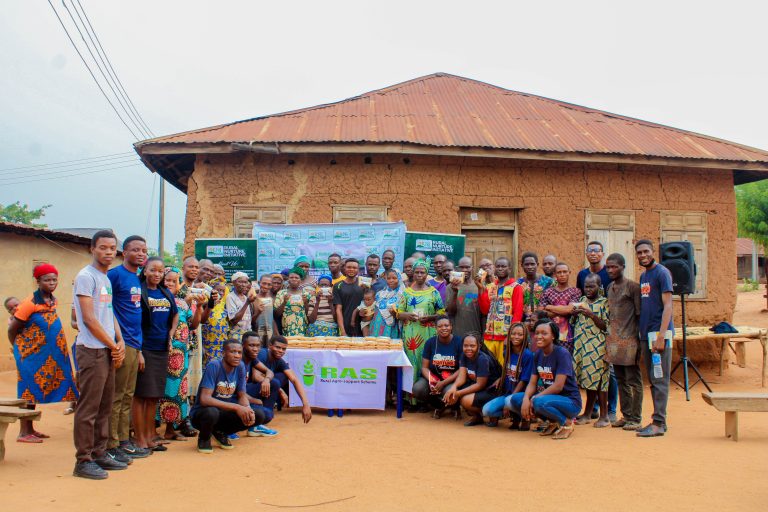
Targeting efforts at raising farmers’ awareness through sensitization on climate change and various adaptation strategies that would help improve their agricultural productivity.
Distribution of Improved Seed variety
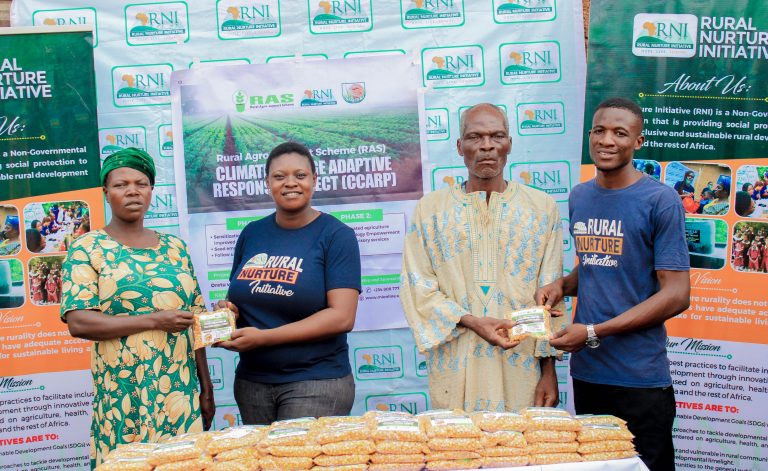
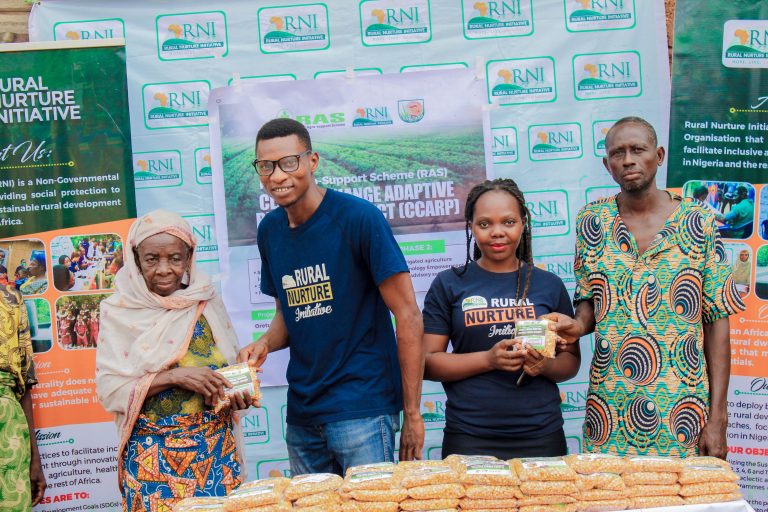
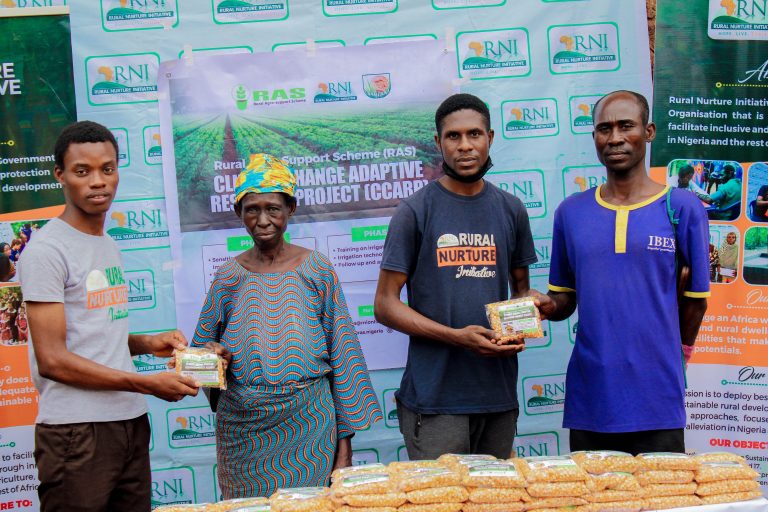
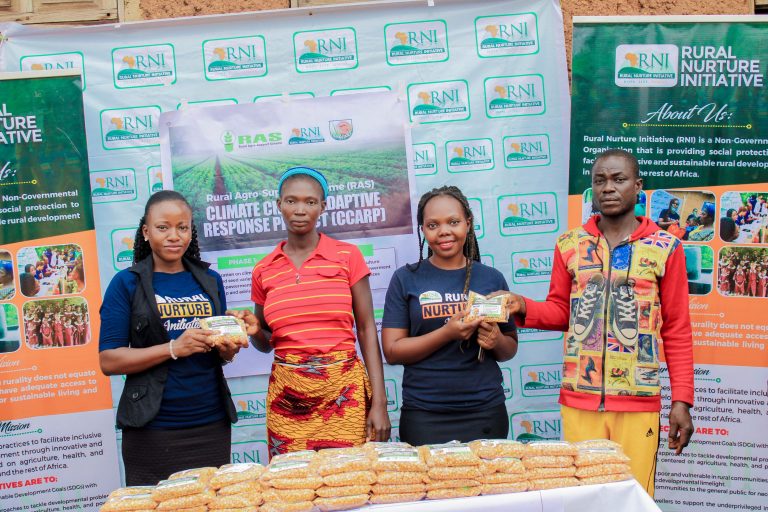
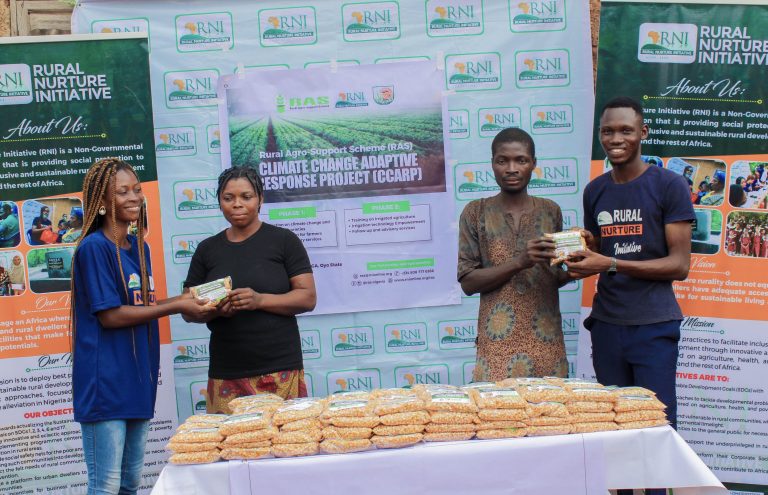
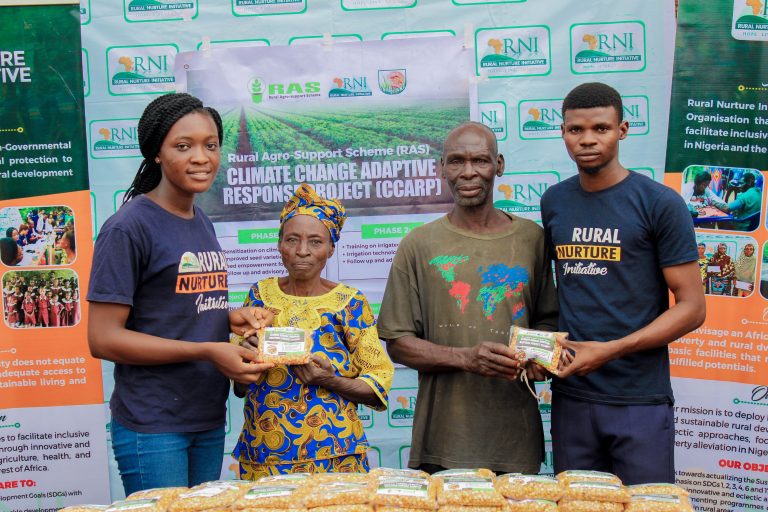
Training Session for female farmers
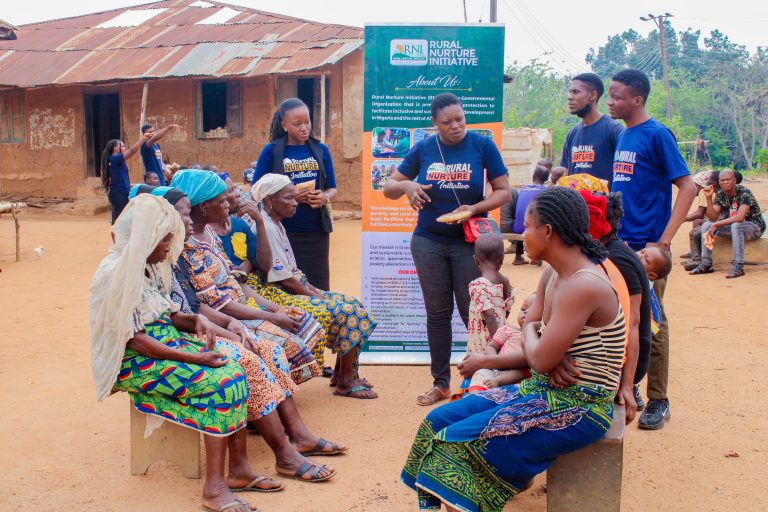
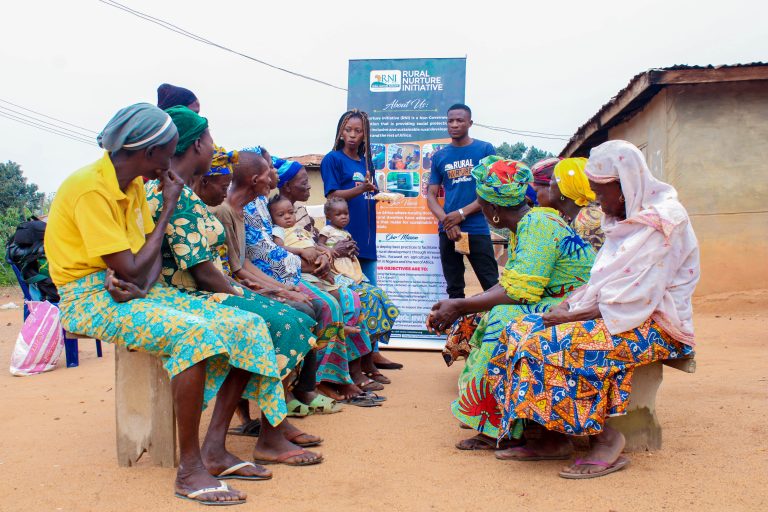
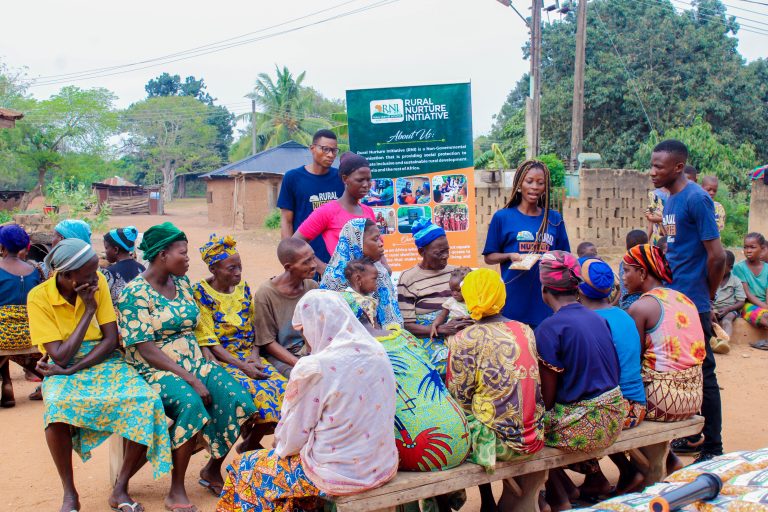
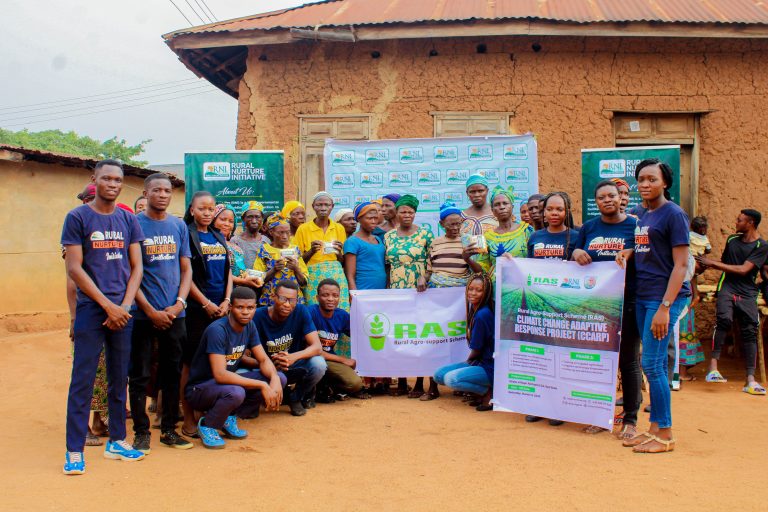
Training session on community seed production techniques, varietal maintenance and effective agronomic practices to aid the cultivation of the improved maize variety (Sammaz 52) donated by our partner, Samlak Seeds Nig. Ltd.
Training Session for male farmers
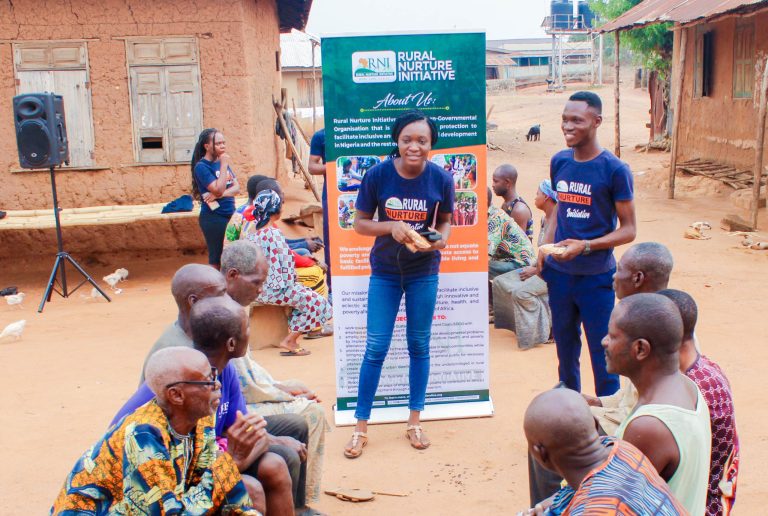
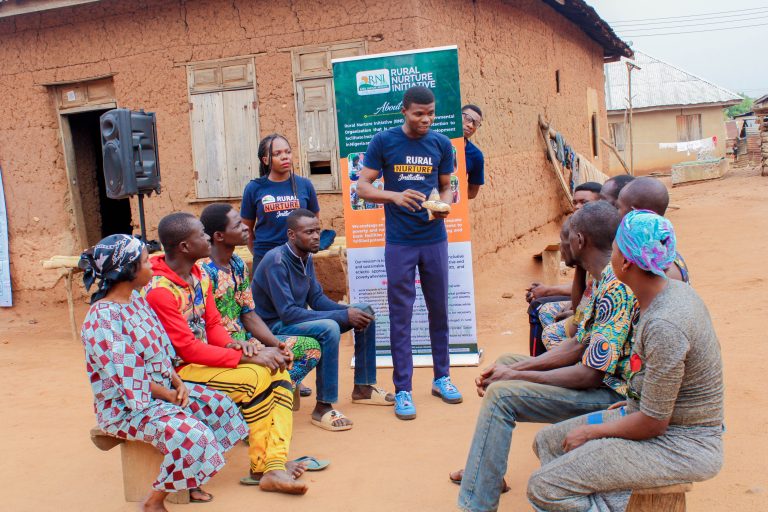
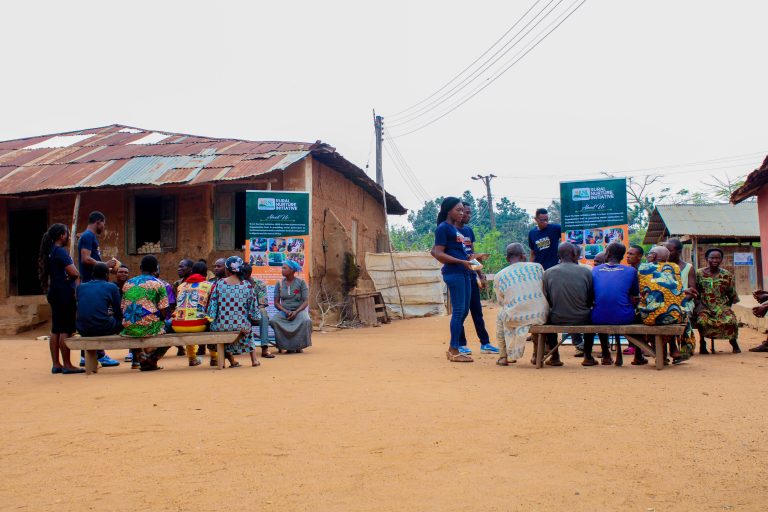
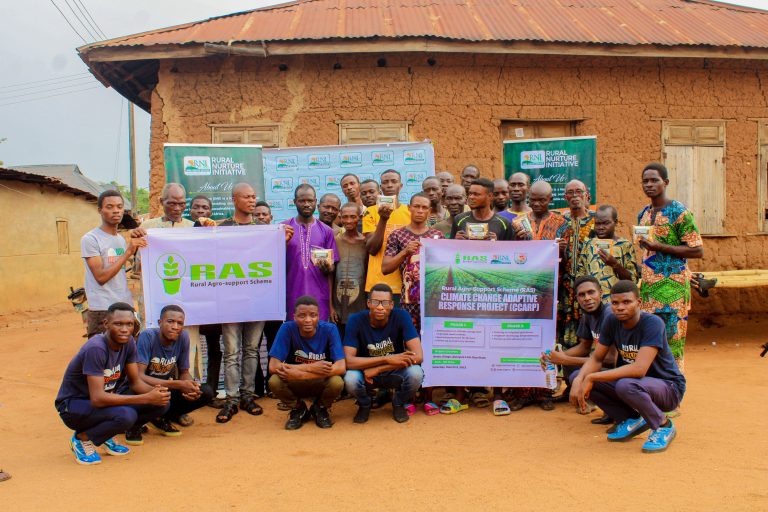
Training session on community seed production techniques, varietal maintenance and effective agronomic practices to aid the cultivation of the improved maize variety (Sammaz 52) donated by our partner, Samlak Seeds Nig. Ltd.

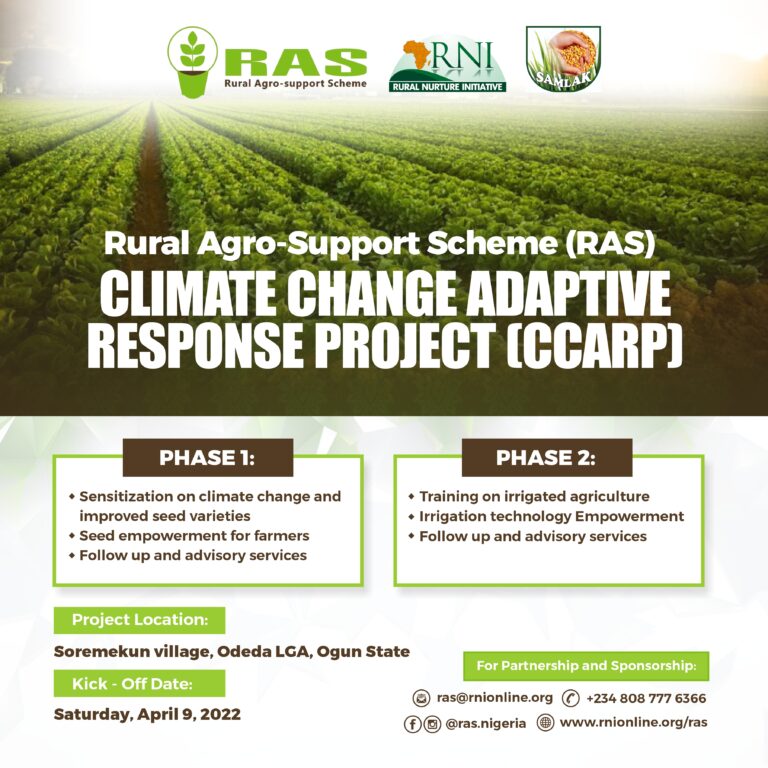
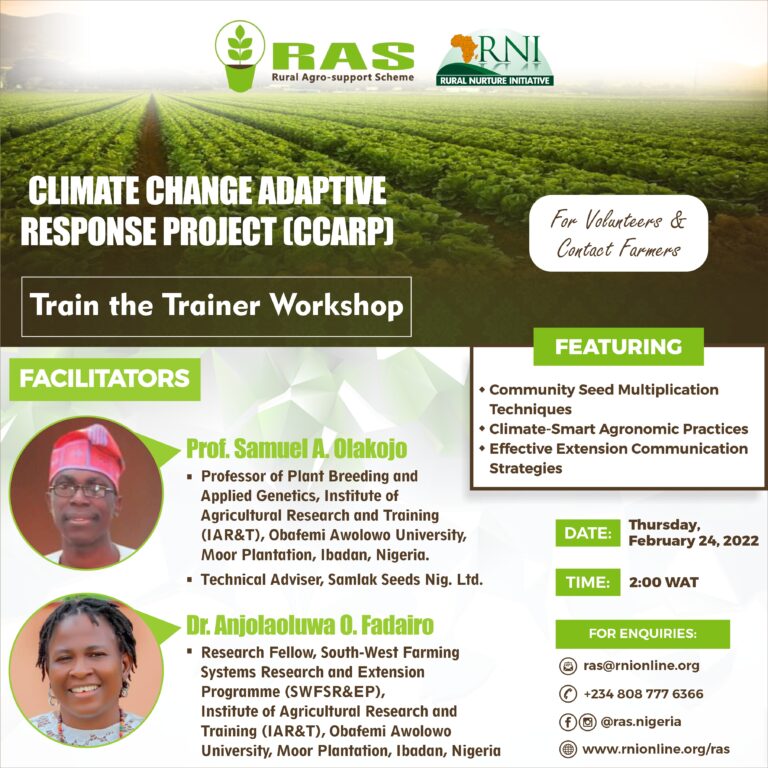

Climate Change Adaptive Response Project (CCARP)
Background
Climate change is one of the most complex environmental challenges undermining progress towards sustainable development, with notable adverse effect on agriculture and food systems in developing countries. It continues to threaten the achievement of food security and livelihood sustainability both at global and national levels. Unfortunately, small holder farmers in Nigeria, largely responsible for about 80% of the total national food productionare dependent on rain-fed agriculture. Consequently, there is growing evidence of vulnerability of smallholder farmers to the effects of climate change.
- reduce rural poverty through additional cropping season that irrigated agriculture provides, which would lead to increased yields and consequently boost farmers’ income.
- reduce farmers’ vulnerability to shocks created by climate change by promoting efficient adaptation strategies.
- ensure better water resource prioritization by efficiently utilising water resources near farms in rural areas.
- enhance the economic growth of rural areas in contributing to agricultural GDP resulting from improved livelihood and increased income.
- create a viable support system for women in agriculture through a 50% gender inclusion rate.
CCARP is a two (2) phased community-based intervention designed to support smallholder farmers in combating climate change and its undesirable effects in Southwestern Nigeria.
The first phase of the project seeks to facilitate the adoption of improved varieties of seeds among smallholder farmers, as a climate adaptation strategy in the project location.
Proposed Location:
1. Oretu village and its environs, Akinyele LGA, Oyo State, Nigeria
2. Soremekun village and its environs, Odeda LGA, Ogun State, Nigeria
Proposed number of beneficiaries: 200 farmers
Kick-off date for phase 1: Saturday, March 12, 2022
Duration: 6 months
Project Deliverables: request full proposal (Email: ras@rnionline.org)
The second phase of the project is designed to facilitate the adoption of small scale irrigation technology among smallholder farmers in the project location.
Proposed Location:
1. Oretu village and its environs, Akinyele LGA, Oyo State, Nigeria
2. Soremekun village and its environs, Odeda LGA, Ogun State, Nigeria
Proposed number of beneficiaries: 200 farmers
Kick-off date for phase 2: dry season (December, 2022)
Duration: 12 months
Project Deliverables: request full proposal (Email: ras@rnionline.org)
Trainings & Workshops
Train-the-Trainer Workshop

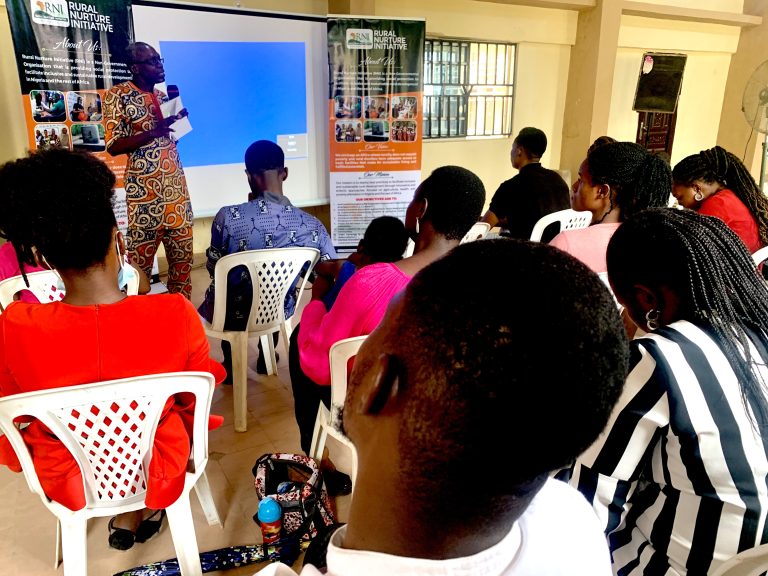
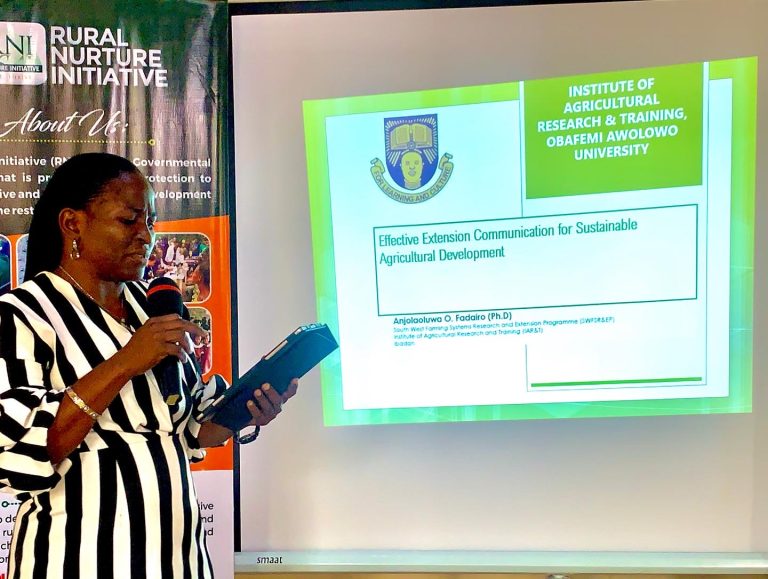
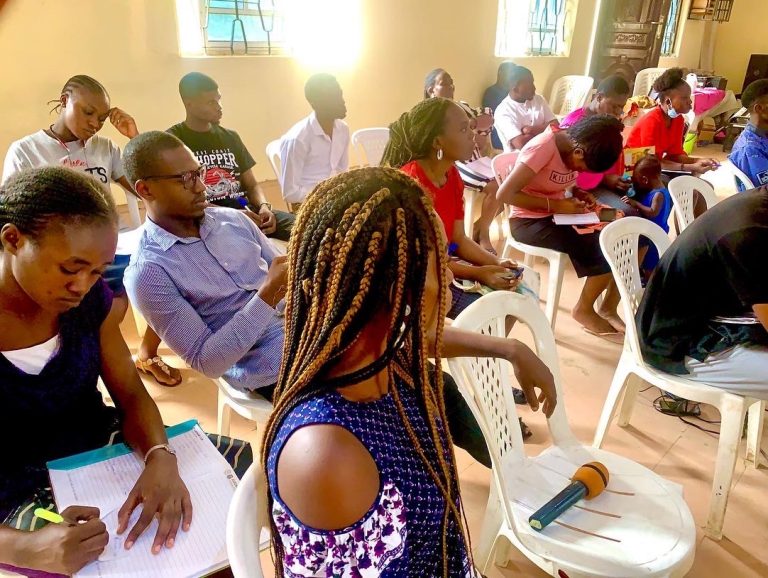
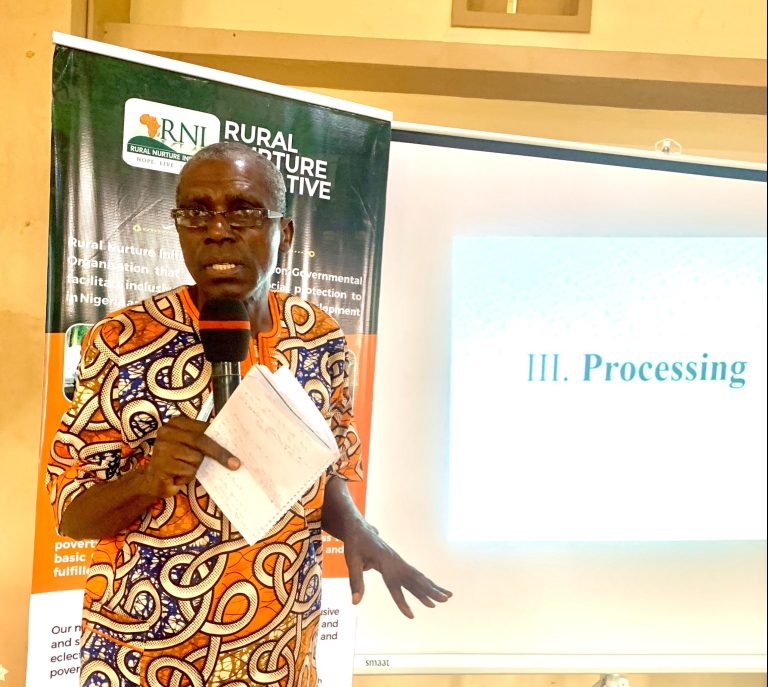
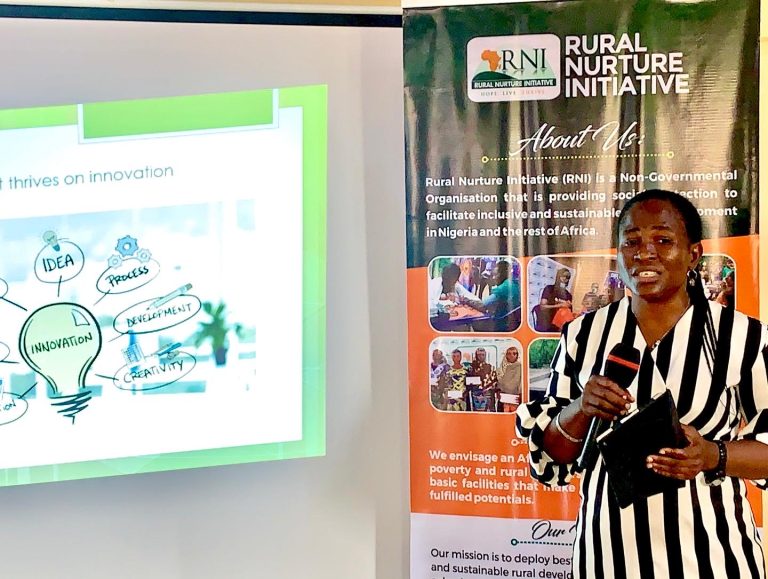
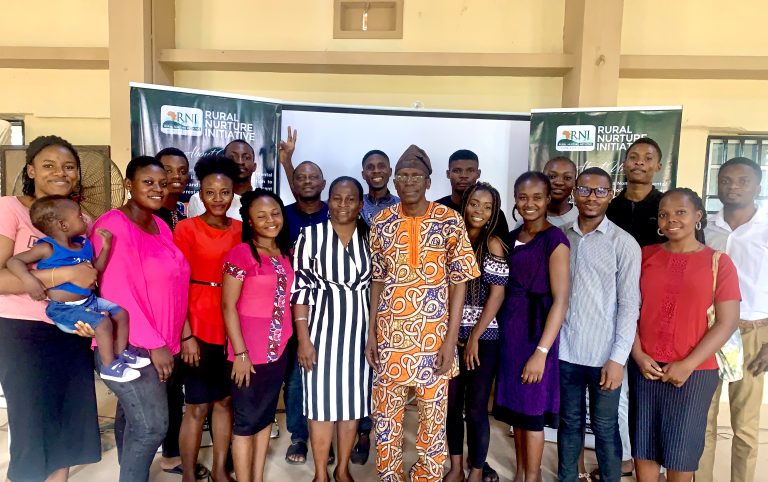
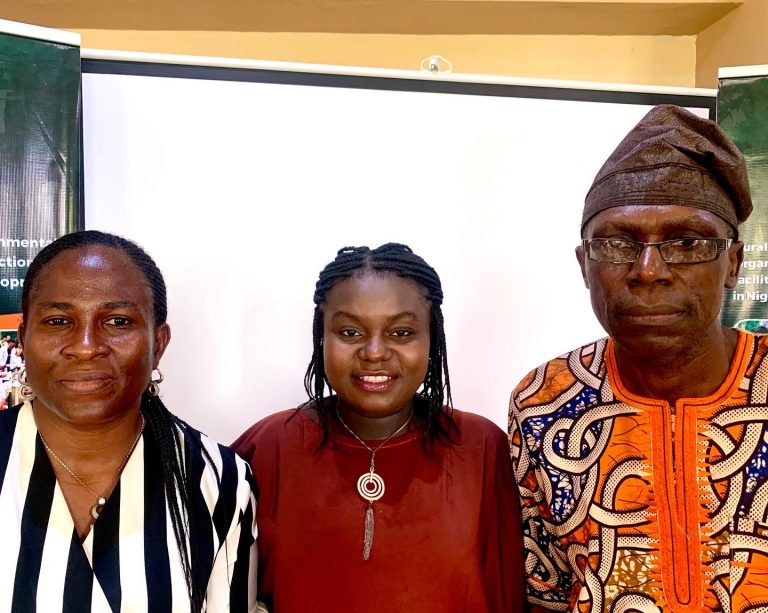
Trainings & Workshops
Train-the-Trainer Workshop








Infographics
